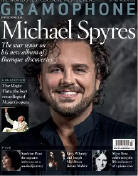Texte paru dans: / Appeared in: |
|
|
Outil de traduction |
|
|
It had never occurred to me before to draw a Venn diagram showing the intersecting circles of lovers of the viola da gamba and fans of Leonard Cohen. Well, this album will attract those people and many more – it’s a triumph in creative play and thoughtful synthesis.
Joel Frederiksen has combined the songs of Cohen, whom he calls a modernday ‘troubadour’, with, for the most part, French Renaissance chansons. It’s an extremely rich listening experience. For Cohen lovers, it’s wondrous if not uncanny to hear your favourite songs dropped off in a different universe, wearing different clothes, but just what – is it the hat? perhaps the shoes? – is trickier to determine. I adore how some of the songs are so lovingly stretched. For instance, the original of ‘So long, Marianne’, which comes in at 5'37", is spun out to 7'10". The tune Le phoenix by de Vincent – a 17th-century composer on whom I can find little to no information – functions as a glorious prelude and bridge-like sepiacoloured memory. The length of tracks is one of the album’s strengths: sumptuous space is given for the listener to sit with each of the magical meldings, so much so that one forgets the artistic assembly and curation at play. That Frederiksen sings while playing the lute – a confident nod to the troubadour tradition – is at the heart of why many of the performances sound so organic. I desperately wish Cohen could have heard just how beguilingly fabulous his songs sound with two violas da gamba and the gentle plucking of a lute.
Although the strophes in both genres allow for simple arrangements, structurally speaking, it’s not a simple case of alternation between Cohen and chanson. Perhaps the cleverest example of this divergence is the meeting of Cohen’s famous ‘Hallelujah’ and Purcell’s The Evening Hymn. Between Cohen’s verses, Frederiksen and friends prepare us with metric play and ground bass for the shift to Purcell. But the chaconne doesn’t last long, and we swerve back into Cohen: indeed, the melting back into the third verse of ‘Hallelujah’ is perhaps my favourite moment on the album. And though soprano Emma-Lisa Roux doesn’t compare with the liquid ease of Emma Kirkby’s matchless rendition with Christopher Hogwood and Anthony Rooley, it’s a moving performance. We begin to hear the Cohen not as pop song but rather as melody with basso continuo, and similarly, Purcell transforms from high art song to just the loveliest of tunes. Clever and heart-warming stuff. |
|




